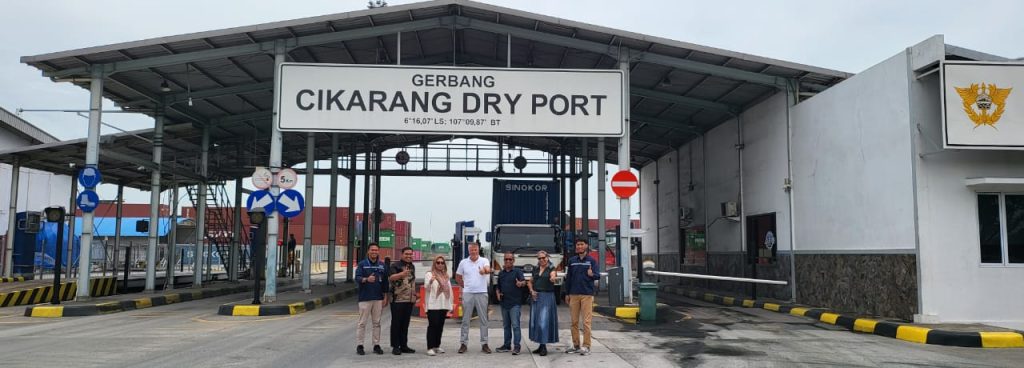Prof. Dr.-Ing. Wolfgang Echelmeyer, an expert in Material Flow and Logistics from the ESB Business School at Reutlingen University, recently joined the SBM ITB as a visiting professor. With over two decades of experience in engineering, logistics, and automation, Prof. Echelmeyer’s visit marks the strengthening of collaboration between the two institutions.
Prof. Echelmeyer’s research focuses on intra- and extra-logistics automation, exploring solutions to enhance efficiency in container terminals. His work aims to improve logistics processes by minimizing manual labor and making operations more efficient.
One of his notable innovations is a robot designed for loading export containers with commodities like tea and coffee. His latest project aims to significantly reduce the time needed to transfer containers from trucks to trains in Germany—from eight hours to just one hour. Prof. Echelmeyer hopes to adapt this innovation to Indonesia’s logistics landscape.
“The question is where and how robots successfully implemented in Germany can be applied here,” he remarked during an interview in Bandung on Monday (11/11).
According to Prof. Echelmeyer, creating an invention is relatively straightforward, but marketing it requires more than quality—it demands disruptive innovation.
“An invention must be faster, cheaper, and more flexible,” he explained, emphasizing the essence of disruptive quality.
Prof. Echelmeyer plans to introduce robotic infrastructure in Indonesia to foster local innovation.

“I want to offer my robot to anyone willing to experiment and improve processes, free of charge,” he stated.
This robot, part of his automation project in Germany, is available for research and experimentation by students and lecturers. In return, Prof. Echelmeyer hopes the research will result in disruptive automation technologies that can meet the demands of the logistics market.
Prof. Echelmeyer has been teaching Technology and Operational Management courses at SBM ITB since late September. He observed several differences between teaching in Indonesia and Germany.

“The course materials are structured differently, but the core content is similar,” he noted. A key distinction lies in the ease of industrial collaboration in Germany, where universities and companies are closely integrated. “In Germany, we often work directly with industrial partners on projects. I’d like to establish similar partnerships at ITB,” he added.
Despite these differences, Prof. Echelmeyer believes his students’ experiences are comparable to those in Germany. “I hope my classes provide them with a global perspective, as an international work ethic is crucial in logistics,” he shared.
In the future, Prof. Echelmeyer expressed his strong interest in collaborating with SBM ITB. He is currently part of the Operations and Supply Chain interest group laboratory, developing systems and facilities for applying automation technologies.




